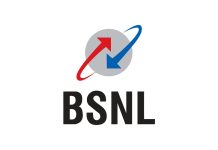
It is difficult to imagine that nothing is built in the city or town you live in. Usually, construction processes take place nonstop in any corner of the world. Some locations require more commercial premises. Somewhere there is a sharp need for real estate objects for residential uses. Nevertheless, the construction sector is considered one of the most ever-growing today.
It is not surprising that this industry with the great potential to grow always transforms and implements new solutions. The latest technologies like artificial intelligence, robotics, and other digital tools simplify most routine tasks and make all the processes more accurate and cost-effective. For example, building estimating software allows most contractors to estimate their expenditures and profits to have a pure financial balance and minimize risks in the context of their budget planning. You can also check nearby excavator listings and compare the prices of different suppliers to find the best option for your projects.
What other technologies can bring benefits to the building sector? There is a range of tech solutions that make a difference in the industry in the context of construction right now. Let’s take a closer look at them to understand their importance for the building niche in general while reviewing narrow-direction engineering and construction spheres.
The Main 5 Construction Technologies That Rule the Industry
It is worth noting that this list of top construction technologies is not limited to the five main ones that are going to be described. Note that there are many tech solutions that can come in handy for modern contractors. Nevertheless, find out more about 5 main construction technologies that are on-trend in 2022 and are expected to stay among popular ones next 5-10 years.
1 – Building Information Modeling Software (BIM)
This is a huge cluster of various software for construction companies. Building information modeling software is about 3D models, estimating, bidding algorithms, and many other approaches at once. It is one of the most on-trend directions for automation and digitization of most building processes.
2 – Data Collection Apps
Together with cloud databases, one of the most on-demand approaches is data collection apps. These applications are suitable for fast synchronization between various corporate devices. Additionally, these apps speed up data processing. For example, on-site workers can share their insights with estimators, managers, and other office team members via special applications.
3 – Drones & Robots
These devices make the construction processes much easier. The contractor requires fewer human resources. As a result, construction companies can optimize their workflows and save in the context of labor costs. Drones and robots can perform various tasks including:
- Measurements on the site;
- Supervision of the object;
- Security missions;
- Estimating & monitoring.
Usually, these devices are for on-site needs. It is difficult to apply drones in the office. Nevertheless, some robotic systems can be used by managers and estimators. For example, it can be a digital archiver or something like that. The same story about VR-based devices and wearables. There are numerous in-site application areas in construction.
4 – 3D Printing
This is an eco-friendly and ever-green alternative to construction material sourcing. Only imagine that almost any detail can be provided through 3D printing technology. Not only did construction start to use this approach. Speaking about building needs, contractors usually apply 3D printing for material prefabrication to streamline this or that stage and save funds concerning supply costs.
5 – Artificial Intelligence
AI digital tools improve construction workflows significantly. Additionally, the navigation level becomes better together with the implementation of other innovative technologies that turn out to be much faster procedures for the company.
To sum up, among the main construction trends are ones for reducing data entry errors (data collection apps), faster estimation of the company’s ROI potential (special-purpose cost software), and enhanced workflows. Additionally, drones, AI, VR, and other tech solutions improve the overall on-site performance of the building firm.









